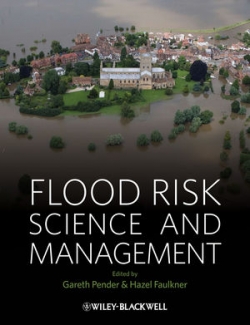Shipping FREE anywhere in India!
- Home
- Flood Risk Science and Management
Flood Risk Science and Management
Author: Gareth Pender , Hazel Faulkner
ISBN: 9781405186575
Medium: English
Publisher: Wiley
₹23,223.00₹20,900.00
Price includes all taxes.
- Description
Approaches to avoid loss of life and limit disruption and damage from flooding have changed significantly in recent years. Worldwide, there has been a move from a strategy of flood defence to one of flood risk management. Flood risk management includes flood prevention using hard defences, where appropriate, but also requires that society learns to live with floods and that stakeholders living in flood prone areas develop coping strategies to increase their resilience to flood impacts when these occur. This change in approach represents a paradigm shift which stems from the realisation that continuing to strengthen and extend conventional flood defences is unsustainable economically, environmentally, and in terms of social equity. Flood risk management recognises that a sustainable approach must rest on integrated measures that reduce not only the probability of flooding, but also the consequences. This is essential as increases in the probability of inundation are inevitable in many areas of the world due to climate change, while socio-economic development will lead to spiralling increases in the consequences of flooding unless land use in floodplains is carefully planned.
- Lorem ipsum dolor sit amet 1
- Lorem ipsum dolor sit amet 2
- Lorem ipsum dolor sit amet 3
© 2016, bookline.co.in. All rights reserved.
Website designed by Infomedia Web Solutions


